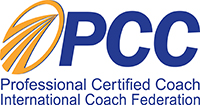I’ve noticed a pattern in my coaching practice.
In the first session, the other person (whether a seasoned CEO or an up-and-coming leader) will start by saying that they want to be more focused and disciplined. They find themselves distracted at work and at home. With so much demanding their attention, they feel scattered and stretched thin. They’ve realized that they’re not fully present with their colleagues and families. Something needs to change.
I then ask them what they hope to get from the coaching process. They say that they want tools to deal with their distraction. They want better routines and new habits to support them in becoming more disciplined and focused.
Now, there’s nothing necessarily wrong with tools and routines to address distraction. Sometimes they can be transformative. If they work – great.
But so often attempts to “fix” inner issues with outer tools don’t succeed. The solutions don’t stick. The band-aid falls off. An endless cycle repeats.
These days we talk about distraction as though it’s an inevitable, ubiquitous phenomenon of modern life. While there is something to be said for such claims, much of the distraction we consider to be normal is also a symptom of underlying pain and dis-ease. There’s a deeper pattern going on. If we don’t address the root issues, the symptoms won’t go away.
What we call “distraction” is more precisely an inner sense of restlessness, agitation, and activation. It’s easy to project these feelings and sensations onto social media, notifications, and work. But ultimately many of us are chronically activated in our nervous systems, meaning we don’t feel safe and settled in our own skin – regardless of how many outside distractions there are or not.
If we want to experience more stillness, settledness, and focus, the question is therefore not: “How can I deal with my distraction?” The question is instead: “How can I resolve the activated parts within myself?”
Addressing the latter question is a slow, gentle process of deep listening and attuned awareness. It’s an approach that addresses the root of the restlessness, rather than dealing with its symptoms.
You give yourself the space to sit still for a moment, and notice what is happening inside. You slow down, and notice the thoughts, sensations, and emotions that go along with the restlessness. Maybe you notice fear, anger, or even numbness. Regardless of what emerges, you listen for the texture and flavor of what is happening within.
It’s a process of digestion and detoxification. You become a space that can host and be with the sensations that otherwise seek alleviation through so-called distractive behaviors. Without trying to remove the activation, you get curious, getting to know how it lives within you.
Crucially, you don’t only do so alone. You bring your fear, anger, or unsettledness into relationship. This can be through professional 1-on-1 support, or in group settings where participants give each other the space to feel and share what’s arising for them.
Many of us learned early on to hold on to our fears alone, since it didn’t feel safe to share our difficulties with others at the time. But if we can provide pockets of receptivity to each other today, then the parts of us that have been frozen in activation for decades can finally breathe out.
By allowing what’s here to be here, distraction starts to lose its grip. Slowly but surely, presence emerges – and along with it, discipline and focus. Not the hard, forced kind of focus, but the natural, organic state which arises when we pursue what’s important to us from a place of embodied presence.
Distraction can be distracting if we try to get rid of it. If we instead try to get to know it, we can see it for the precious gift that it has the potential to be.
And in the process, we might just find ourselves less distracted, too.
